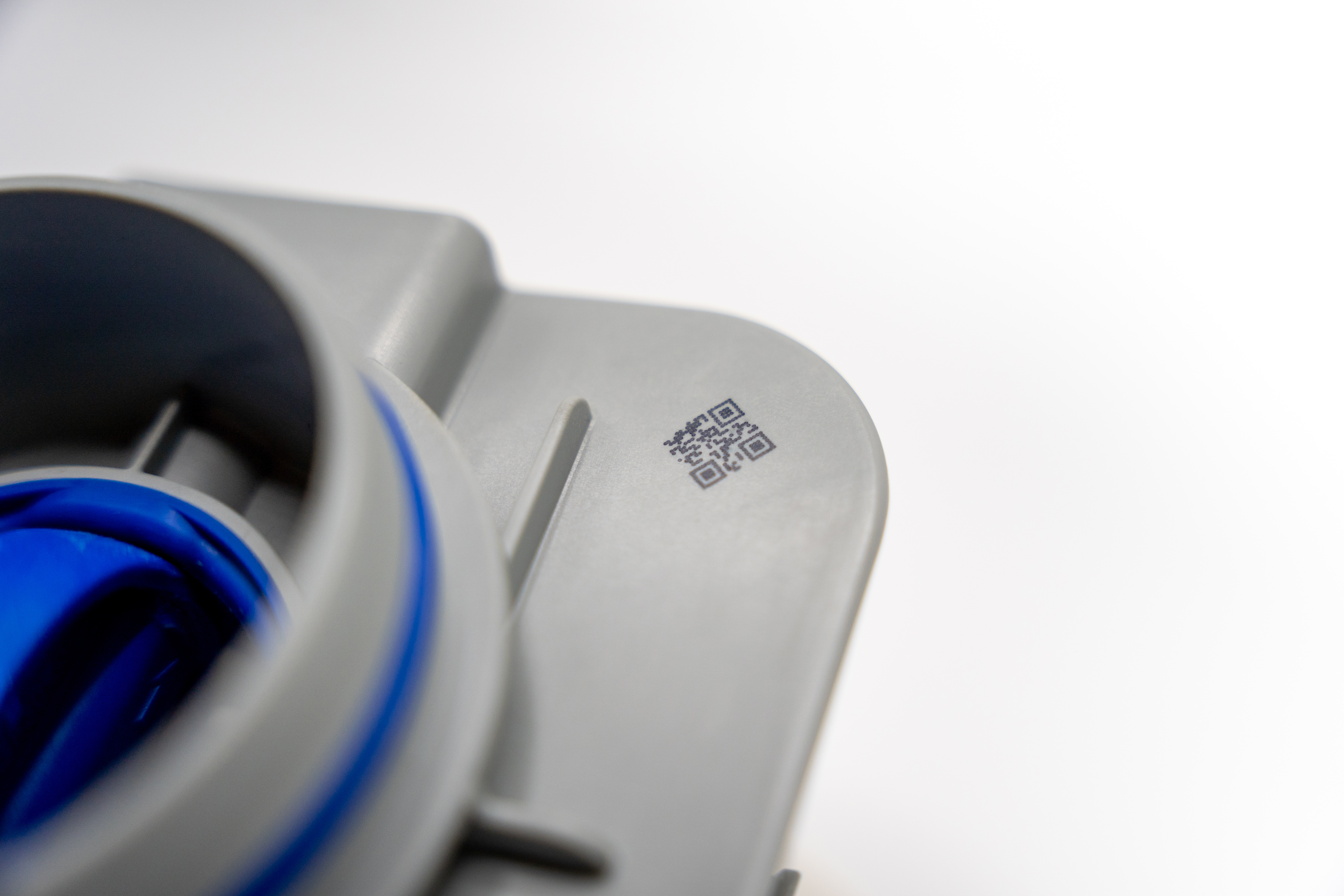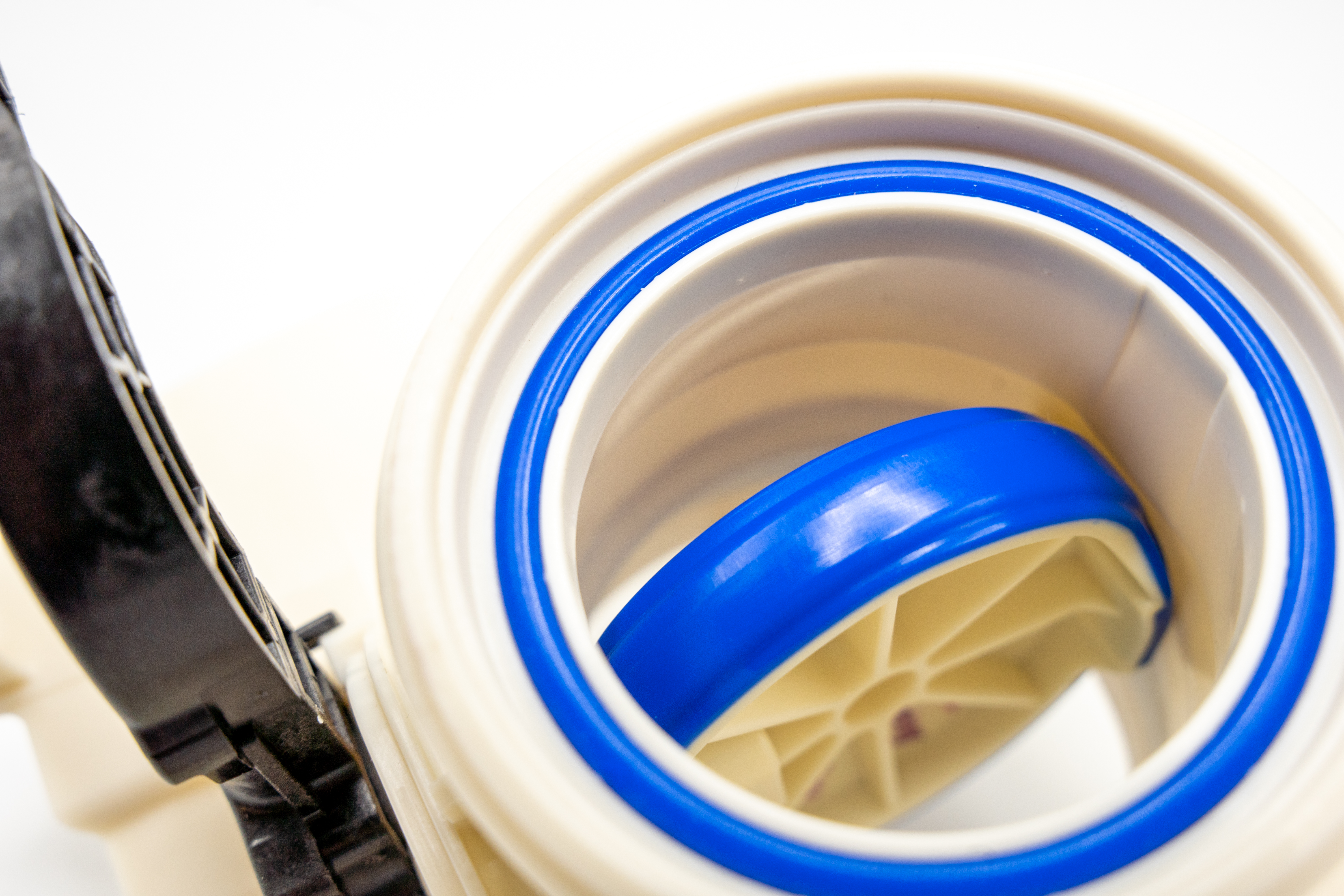Optimizing 2K production and sealing technology for food-grade products
ENBI Plastics & Silicones was approached by a leading player in the food processing industry to manufacture their food-contact product. This request came from global production uncertainties, the customer’s need for greater process control, and the ambition to develop a more sustainable product. The existing product consists of a 2K housing with various hook shapes and a seal. The product also needed to be made from both PP and glass-filled PP, to allow for standard cleaning and steam cleaning. In addition to material differences, this food-contact product comes in three lengths, resulting in six total versions. This created challenges in production as well as assembly.
Technical challenges in production and assembly
The main challenges the ENBI project team faced were:
- Developing multiple product variations from a single 2K mold
- Developing a universal seal for both PP and glass-filled PP housings
- Printing shelf-life information on PP, a material with poor ink adhesion
- Automating one assembly process for six different product variations
Sealing solution and product monitoring
The seal performs two key functions: sealing and supporting the open/close mechanism of the housing. For this, we used a soft, compressible material with high friction properties. To enable this material to move, a food-safe lubricant is added during assembly. However, this lubricant has the downside of shortening the product’s lifespan. That’s why it’s necessary to track and monitor the product’s shelf life.
To properly monitor the product, a QR code is printed on it. Printing on PP and glass-filled PP housings is a challenge because ink generally adheres poorly to these materials. By integrating new technology at the end of assembly, we successfully printed QR codes onto the housings.
Efficient production with a “one-piece-flow” process
By implementing a one-piece-flow process, capable of assembling all six product variants, we achieved efficient production. With a flexible cobot, we perform reproducible assembly steps, ensuring consistent quality and reducing inefficient manual work. Thanks to flexible cobot cells and in-house designed, 3D-printed molds, we can process all product variants within the same assembly cell. This resulted in flexible, efficient, and stable production.
Next Generation: Innovation and optimization
Beyond solving the production and assembly challenges, our engineers partnered with the customer to develop the next generation of this food-contact product. With innovative technologies, they extended the product’s lifespan.
The open/close function of the new sealing component was optimized, without lubricants. Around the sealing section, a soft part of liquid silicone rubber (LSR) was overmolded as the second component. The material transforms from an uncured state into a fully cured, durable product. With innovative post-processing techniques, the LSR surfaces are smoothed, ensuring low friction without compromising sealing performance.
Thanks to optimization of the sealing component, the complex 2K housing was simplified to 1K. By strategically shifting complexity within the product components, we improve quality and reduce costs.
Beyond the benefits above, this optimization delivered the following advantages:
- Smarter mold design for different product variations
- Shorter injection molding cycle
- No lubricant, no shelf-life limitations
In addition, we replaced the original housing material, PP or glass-filled PP, with PBT. This improved adhesion and allowed the same product to be used for both standard and steam cleaning. This makes the next generation more sustainable, more versatile, and less dependent on shelf life, delivering significant improvements for the customer and their end users.
Collaboration and results
This project highlighted ENBI’s technical expertise and commitment to quality and innovation. Through close collaboration with the customer, we created a product that improves performance while reducing costs.


